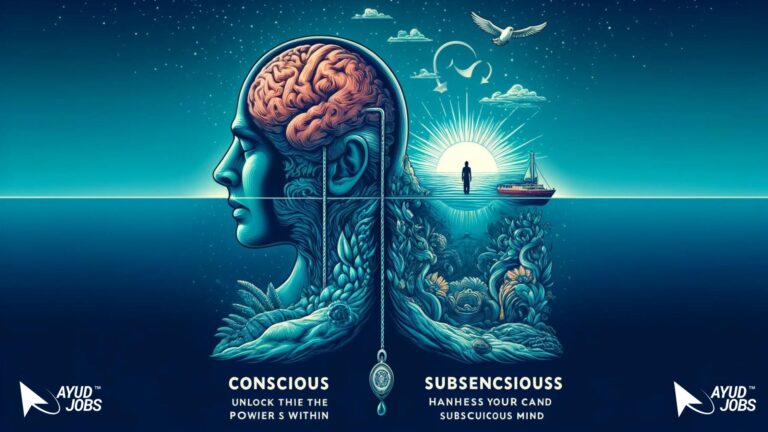Morality in Life: The Foundation of Ethical Living
Introduction
Morality shapes our choices and actions every day. It guides how we treat others, make decisions, and live with integrity. Whether in personal or professional life, understanding and applying moral principles helps us create a just and compassionate world. This blog will explore the meaning of morality, its importance in daily life, and how it can positively impact individuals. By the end, you will see how adopting moral values can lead to a more fulfilled and ethical life.
What Is Morality?
Morality refers to the principles that define what is right and wrong. It’s about understanding the difference between good and bad actions and making decisions that respect others’ rights and well-being. Morality is influenced by various factors such as culture, religion, and personal experiences. For some, it’s based on religious teachings, while others derive it from philosophical reasoning or societal norms. Regardless of the source, moral values help us live harmoniously in society.
Why Is Morality Important?
Morality plays a key role in how we interact with others and how we are perceived. When we act morally, we build trust, create stronger relationships, and contribute positively to society. In contrast, immoral behavior leads to conflict, mistrust, and a breakdown of social harmony. Morality is the foundation of fairness, respect, and kindness. Without it, society would struggle to function cohesively.
Morality in Personal Life
In personal life, morality is about being honest, kind, and respectful. It means keeping promises, showing empathy, and treating others as you wish to be treated. When we act morally, we gain self-respect and peace of mind, knowing that we have done the right thing. For example, being honest with friends or family, even when the truth is difficult, is a moral decision that fosters trust.
Real-Life Example: The Story of Neha
Neha, a college student, was faced with a moral dilemma. She had an opportunity to cheat on a difficult exam by getting answers from a friend. Many around her chose the easier path, but Neha believed in her principles. Despite the pressure, she decided to study hard and take the exam without cheating. Although her score wasn’t perfect, she felt proud of her honesty. Over time, her classmates noticed her integrity, and she became a trusted leader in group projects. Neha’s decision not only strengthened her moral character but also earned her the respect of others.
This story shows that moral choices, though sometimes challenging, lead to long-term rewards. Neha’s situation is a clear example of how morality impacts both individual and social life.
Morality in Professional Life
Morality also extends into professional environments. Acting with integrity, fairness, and respect at work is crucial for success. Employees who display strong moral values contribute to a positive work culture, fostering collaboration and mutual respect. For instance, a manager who listens to employees’ concerns and acts in their best interests builds a team that is loyal and motivated. On the other hand, unethical behavior such as lying or exploiting others damages relationships and creates toxic workplaces.
The Ripple Effect of Morality
When one person acts morally, it often inspires others to do the same. Morality has a ripple effect that can influence families, communities, and organizations. One small act of kindness or honesty can motivate others to follow suit. This collective moral behavior strengthens societal bonds and promotes a culture of trust and respect.
How to Cultivate Morality in Life
Reflect on Your Values: Regularly think about what is important to you. What principles do you want to guide your life? Writing down your core values can help clarify your moral compass.
Practice Empathy: Put yourself in others’ shoes. Understanding different perspectives helps you make more compassionate and fair decisions.
Be Honest: Even when it’s difficult, honesty builds trust and strengthens your relationships.
Take Responsibility: Accept the consequences of your actions, whether positive or negative. This shows maturity and strengthens your moral character.
Lead by Example: When you act morally, others will notice and may be inspired to do the same. Whether at home, work, or in your community, lead with integrity.
Transitioning Morality Into Action
Transition words such as “therefore,” “thus,” and “in conclusion” help us link our moral decisions to their outcomes. For instance, if we choose to act kindly toward others, therefore, we build stronger relationships. Thus, by applying empathy and fairness, we can contribute positively to the world around us.
Using these hashtags in social media posts or blogs can help increase visibility for those searching for content on morality.
The Long-Term Benefits of Living Morally
Living morally is not always easy. Sometimes, it involves sacrifice or standing up for what is right, even when it’s unpopular. However, the long-term benefits are clear. Morality leads to inner peace, stronger relationships, and a better society. When we act with integrity, we build a reputation that others trust and admire. Over time, these actions lead to personal growth and fulfillment.
How Morality Creates Positive Change in Society
When individuals act with morality, it influences society positively. For example, a community where people respect each other’s rights will have less crime, more cooperation, and a stronger sense of belonging. In conclusion, when we all take responsibility for our actions and make moral choices, we create a better world for everyone.
Morality in Modern Times
In today’s fast-paced world, the importance of morality cannot be overstated. With advances in technology, communication, and globalization, we encounter diverse perspectives and challenges daily. This makes moral decision-making even more important. Thus, in a world that is constantly changing, having a strong moral foundation helps us navigate complex situations with integrity.
Final Thoughts
Morality is the bedrock of a meaningful life. By making decisions based on fairness, empathy, and honesty, we not only improve our lives but also positively impact those around us. Therefore, the pursuit of morality should be a lifelong goal, influencing our personal and professional actions.
Let Neha’s story inspire you to act with integrity. Even when faced with challenges, moral decisions lead to lasting respect and personal growth. In conclusion, morality isn’t just about knowing right from wrong—it’s about consistently making choices that benefit both ourselves and others.
#MoralLiving #EthicalChoices #IntegrityInLife #HonestActions #MoralityInAction #KindnessAndRespect #ayud #ayudjobs #askayud #MultiLanguageSupport #ResumeBuilder #gotestit #ayudian #ayudblog #ayudcareer
How to Use Ayud : A Comprehensive Guide
Join our what’s app channel for timely updates







